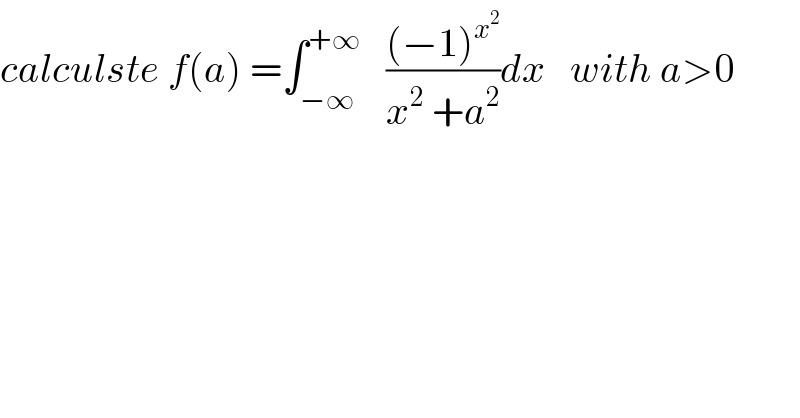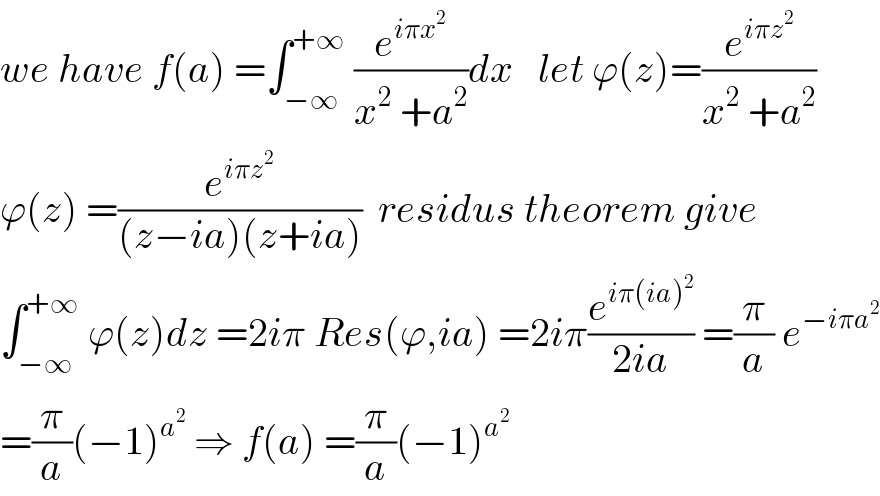
Question Number 69379 by mathmax by abdo last updated on 22/Sep/19

$${calculste}\:{f}\left({a}\right)\:=\int_{−\infty} ^{+\infty} \:\:\:\frac{\left(−\mathrm{1}\right)^{{x}^{\mathrm{2}} } }{{x}^{\mathrm{2}} \:+{a}^{\mathrm{2}} }{dx}\:\:\:{with}\:{a}>\mathrm{0} \\ $$
Commented bymathmax by abdo last updated on 23/Sep/19

$${we}\:{have}\:{f}\left({a}\right)\:=\int_{−\infty} ^{+\infty} \:\frac{{e}^{{i}\pi{x}^{\mathrm{2}} } }{{x}^{\mathrm{2}} \:+{a}^{\mathrm{2}} }{dx}\:\:\:{let}\:\varphi\left({z}\right)=\frac{{e}^{{i}\pi{z}^{\mathrm{2}} } }{{x}^{\mathrm{2}} \:+{a}^{\mathrm{2}} } \\ $$ $$\varphi\left({z}\right)\:=\frac{{e}^{{i}\pi{z}^{\mathrm{2}} } }{\left({z}−{ia}\right)\left({z}+{ia}\right)}\:\:{residus}\:{theorem}\:{give} \\ $$ $$\int_{−\infty} ^{+\infty} \:\varphi\left({z}\right){dz}\:=\mathrm{2}{i}\pi\:{Res}\left(\varphi,{ia}\right)\:=\mathrm{2}{i}\pi\frac{{e}^{{i}\pi\left({ia}\right)^{\mathrm{2}} } }{\mathrm{2}{ia}}\:=\frac{\pi}{{a}}\:{e}^{−{i}\pi{a}^{\mathrm{2}} } \\ $$ $$=\frac{\pi}{{a}}\left(−\mathrm{1}\right)^{{a}^{\mathrm{2}} } \:\Rightarrow\:{f}\left({a}\right)\:=\frac{\pi}{{a}}\left(−\mathrm{1}\right)^{{a}^{\mathrm{2}} } \\ $$
